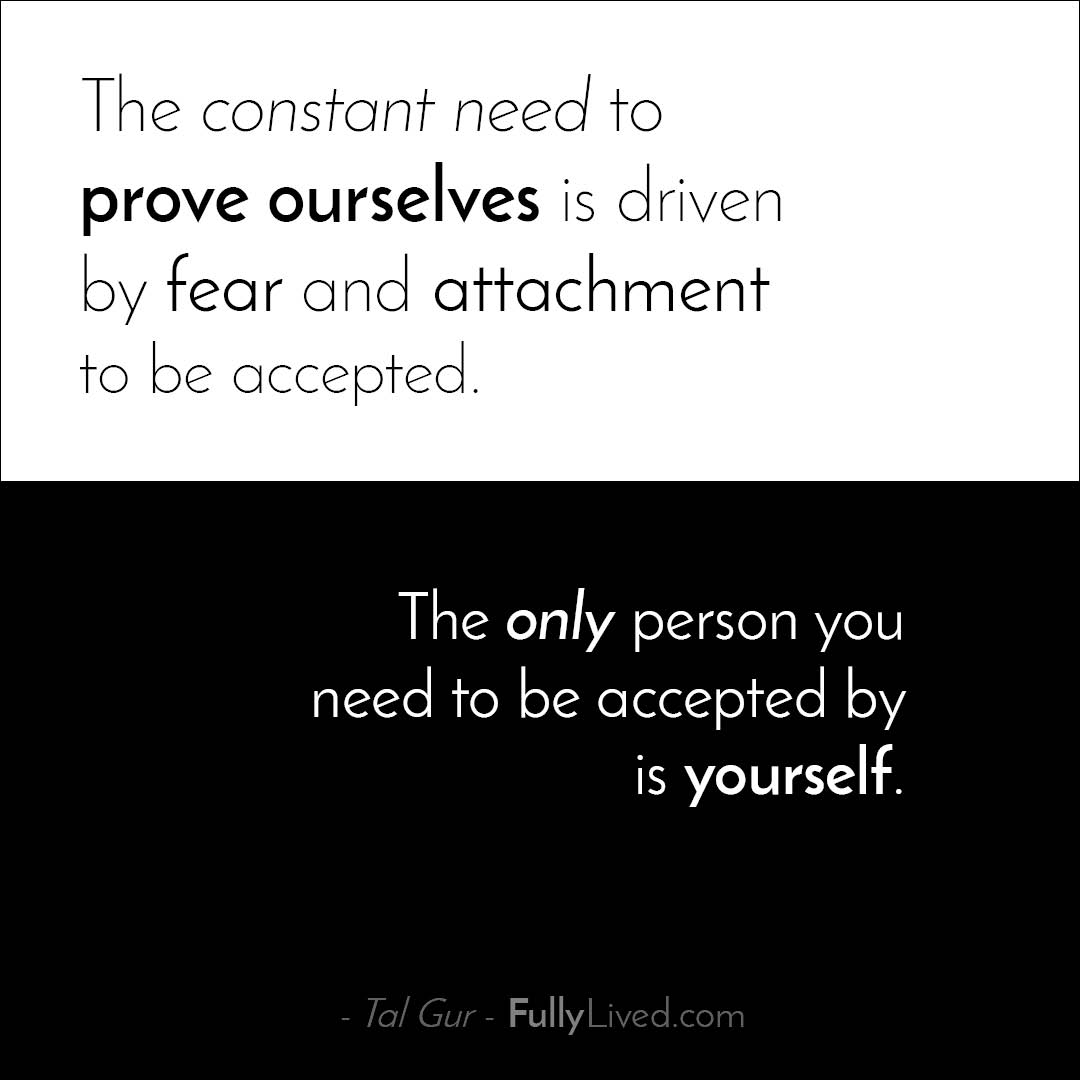The constant need to prove ourselves is driven by fear and attachment to be accepted. The only person you need to be accepted by is yourself.
At its core, this quote speaks to the human condition and our ongoing struggle for acceptance and validation. It suggests that we often operate out of fear: fear of rejection, fear of being deemed insufficient, fear of being unseen. This fear can drive us to constantly strive to prove ourselves, not just to others, but also, tragically, to ourselves. We become attached to the idea of acceptance to such an extent that we forget our own self-worth, basing our value on the opinions and validations of others.
But here's the key, the "aha!" moment: the quote asserts that the only acceptance we truly need is our own. It doesn't mean that others' opinions are worthless or that social interactions are irrelevant. Rather, it means that we should not give them the power to define who we are or to decide our self-worth.
So, the call to action in this quote is clear: step away from the cycle of constantly seeking external validation. Instead, focus on accepting yourself, flaws and all. It's about embracing your journey, your growth, and your uniqueness. You're the only one who can truly understand your struggles, victories, and dreams. Therefore, your own acceptance is the most meaningful and impactful.
Is there a historical example that illustrates the message of the quote?
One such example is the life of Mahatma Gandhi, the leader of the Indian independence movement against British rule.
Gandhi believed in the power of personal transformation and self-discipline as a means to bring about social and political change. He famously said, "Be the change that you wish to see in the world." Gandhi dedicated himself to a life of simplicity, nonviolence, and truth. He saw these principles as essential for both personal and societal transformation.
Throughout his life, Gandhi continuously worked on self-improvement and self-mastery. He emphasized the importance of introspection, self-discipline, and self-sacrifice. Gandhi believed that by changing oneself, one could inspire others to change and create a ripple effect that would eventually lead to a larger transformation in society.
His philosophy of nonviolent resistance, known as Satyagraha, was based on the idea that individuals could confront injustice through peaceful means and transform the hearts and minds of oppressors. Gandhi's personal transformation and commitment to nonviolence inspired millions of people in India and around the world, contributing significantly to the Indian independence movement.
Gandhi's life exemplifies the message of the quote by showing that personal change and self-improvement have the power to inspire and influence others, ultimately leading to broader social change.
*To obtain more inspiration and motivation to achieve your goals, you definitely want to check out my extensive list of growth goals. This page contains SMART goal ideas that can help you establish new aspirations and attain greater heights in your personal growth journey. I utilized this page myself to create my own list of 100 life goals, which I dedicated a decade to pursuing.
Chief Editor
 Tal Gur is an author, founder, and impact-driven entrepreneur at heart. After trading his daily grind for a life of his own daring design, he spent a decade pursuing 100 major life goals around the globe. His journey and most recent book, The Art of Fully Living, has led him to found Elevate Society.
Tal Gur is an author, founder, and impact-driven entrepreneur at heart. After trading his daily grind for a life of his own daring design, he spent a decade pursuing 100 major life goals around the globe. His journey and most recent book, The Art of Fully Living, has led him to found Elevate Society.





















